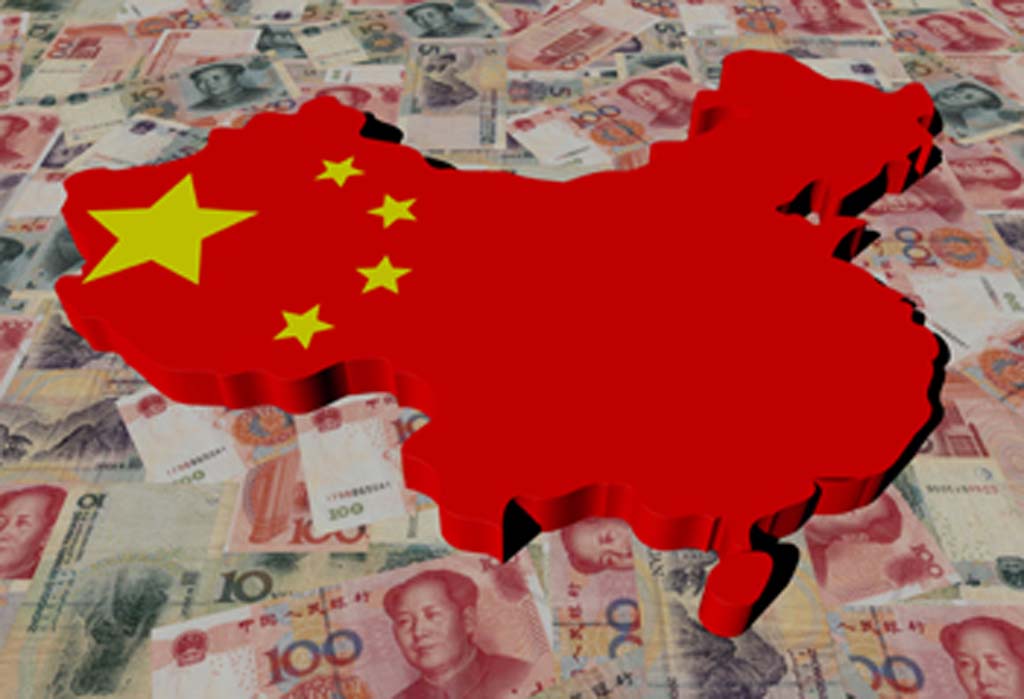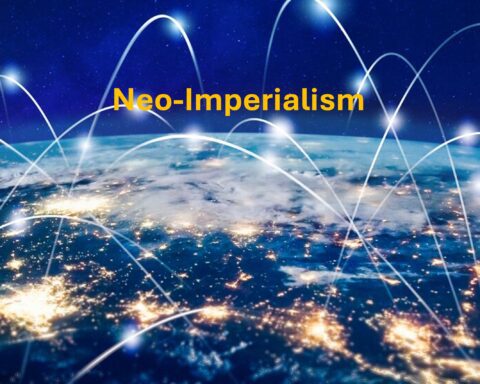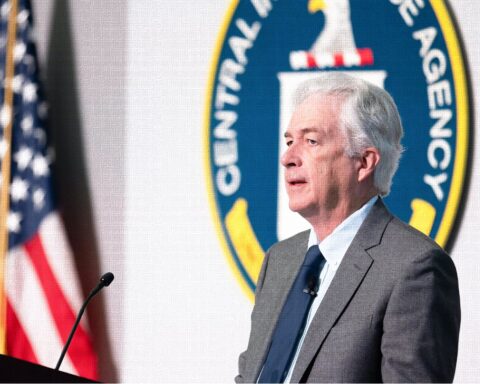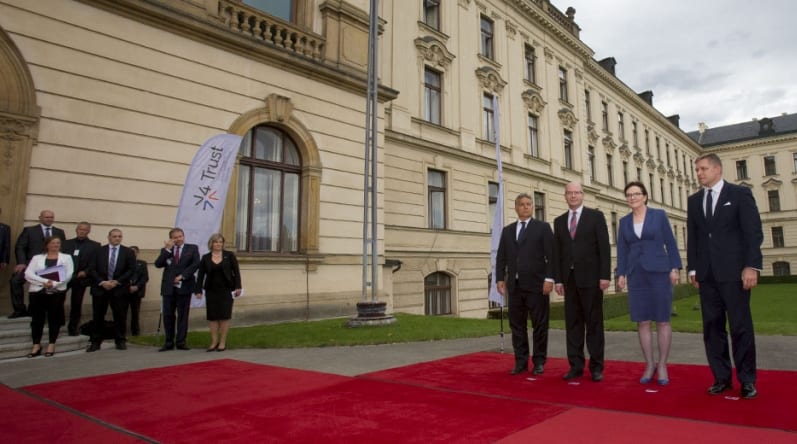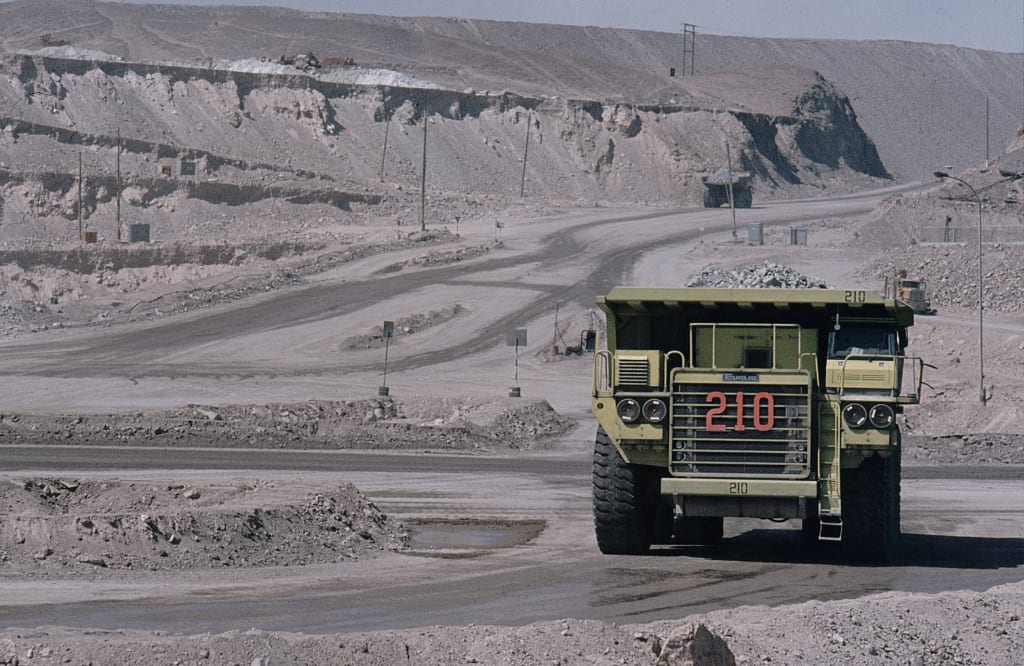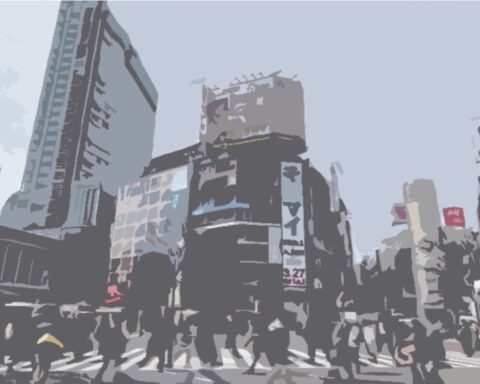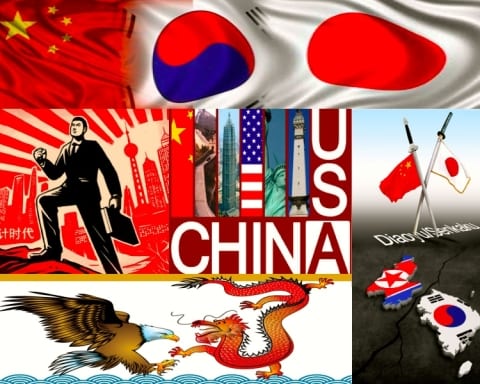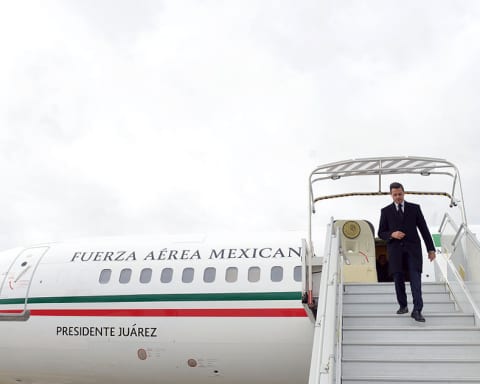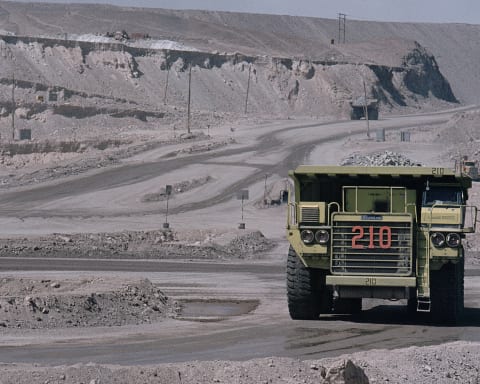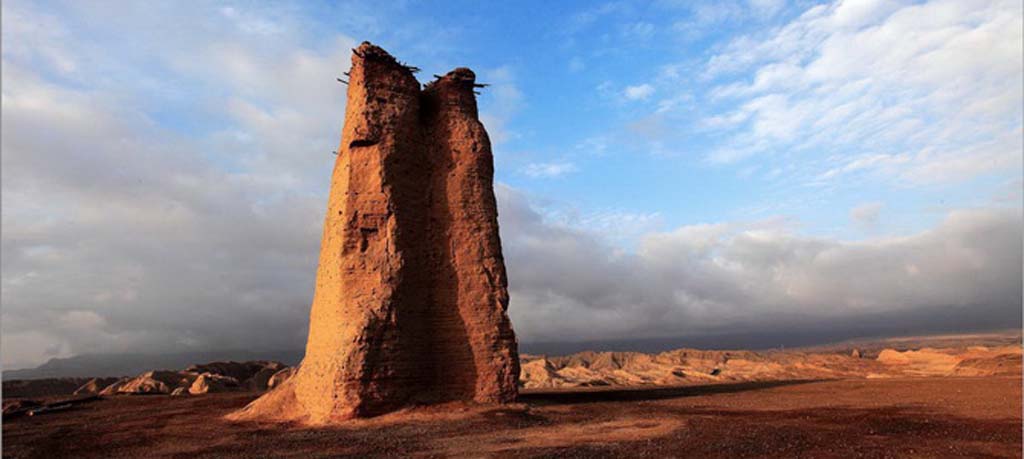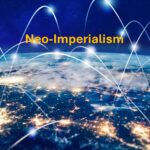The achievements of President Xi Jinping’s short duration in Britain are the first steps of what China hopes to be the path to becoming a fully-developed country. Proclaimed a “golden era” in relations between the two nations by Prime Minister David Cameron, China views Britain as a “great platform from which China can go global,” according to head of Chatham House’s Robin Niblett.
Indeed, as China seeks to shift its economy from an export-based to a service-based economy and to propel the yuan into an internationally-traded currency that could potentially rival the dollar, yen, and Euro, access to Britain’s financial markets is viewed as critically important after the conspicuous blockade from the Trans-Pacific Partnership by the United States.
Outside of Hong Kong, as President Xi told the British Parliament, the United Kingdom is the leading offshore trading center. As The Economist notes, “The Bank of England was the first G7 central bank to sign a swap agreement with China’s central bank.” Offshore yuan-denominated bonds were recently sold in the UK by Chinese commercial banks and on October 20th, China sold its first sovereign bond worth over $4 billion in London. What this accomplishes is that it lends an air of credibility to the Chinese yuan as an international currency. Britain was also the first major Western power to step on board the Asian Infrastructure Investment Bank led by China.
American politicians will need to find new ammunition as China cuts ties with its mercantilist policies. Long a punching bag for Trump, Webb, Romney, and others, China’s export-led growth gained what many call an unfair advantage in global markets as China often intervenes to prevent rapid appreciation of the yuan against the dollar. A strengthening yuan hurts Chinese exports and lowers the income level of Chinese exporters in markets that trade in dollars. At six yuan to the dollar, a t-shirt exporter from China who generates $100 per day in revenue receives 600 yuan. A stronger yuan means it takes less yuan to purchase a dollar (or more dollars to purchase a yuan). At three yuan to the dollar, the same amount of t-shirts generating $100 a day now only brings the Chinese business person 300 yuan a day. In order to prop up its exports, China currently employs a strategy of intervening in markets by purchasing enormous amounts of dollar-denominated reserves which artificially increases the value of the dollar by driving up demand and simultaneously decreases the value of the yuan by increasing the supply. This has largely been China’s policy over the past several decades whenever the yuan drifted outside of its desired peg range.
This will change as China moves its economy away from low-cost labor and manufacturing and more towards sophisticated services. China recently drafted its 13th five-year plan for its economy. Though it once set production measures for steel, grain, and other manufactured goods, the role of the plan started to relax in the 1980s as China shifted away from a command economy. The five-year plan won’t be unveiled until March, but in a communique released at the end of the plenum, Xinhua announced that in addition to moving the economy away from heavy industries and towards consumption and services, there will also be an emphasis on promoting and incentivizing innovation along with a pledge to reduce the frequency of state intervention in the market.
This may be viewed with skepticism as China recently pumped $200 billion dollars into its economy following severe stock market declines this past summer. President Xi has also publicly stated that state-owned-enterprises will continue to play a dominant role. Yet, history has shown that banks have traditionally granted capital to industries the plan aims to develop, while both state-owned and private firms adjust their business goals accordingly. This further underscores the importance of China’s new-found relationship with Britain. The Economist points out that the rebalancing of China’s economy will likely “play to Britain’s competitive advantages in sectors like education, high-end engineering and scientific research.” These are all components necessary in an economy emphasizing services. President Xi even made a stop at Imperial College London which announced new education and research collaborations with China. The innovation of science and technology comes about with research and education—both points of emphasis in the communique from Xinhua.
With a trade deficit with China of $340 billion in 2014, this should come as good news for American exporters who feel China unfairly manipulates its currency to give its exporters a competitive edge. Indeed, the trade deficit with China has steadily increased from only $6 million in 1985 to over $33 billion in 1995, $200 billion in 2005, and is currently on pace to surpass $350 billion in 2015. Expect to see these figures plummet as China will necessarily need to allow the yuan to liberalize as China makes the move to a service-oriented economy. With a declining emphasis on exports, there will no longer be a need for the People’s Bank of China to intervene to keep the yuan within its current peg range. China will also want to see the value of the yuan appreciate if there is any hope of it becoming an international currency. A strong, international yuan makes US exports more competitive and a Chinese economy focusing on services such as education, science, and research will continue to raise China’s national income per capita.
For all the pomp and circumstance surrounding President Xi’s visit to Britain and the future of China’s economy, there are also a fair amount of voices aiming criticisms at the authoritarian state’s human rights record. Liu Xiaobo is currently serving an 11-year prison sentence for “subversion of state power” for his involvement with Charter 08, a manifesto calling for pluralist politics in China. Ironically, it is the same work he contributed to Charter 08 that won him the Nobel Peace Prize in 2010. Tibetan monks can be jailed for simply talking to foreign journalists about the Dalai Lama. While democracy is not necessarily a precondition for economic development, economic growth does often lead to the establishment of democratic regimes. A number of Asia’s fastest growing economies, including Taiwan and South Korea, adopted democratic governments after the emergence of a burgeoning middle class. Though the Communist Party of China will never admit it, we already see this happening in China with its landmark decision to end its decades-long one-child policy, a move that McClatchy DC calls an acknowledgement that the policy hinders economic growth.
With couples preferring boys over girls in a system that only allows one child, a gender imbalance has emerged that will lead to 30 million more males than females within the next five years in China. As Stuart Leavenworth notes, this is a “formula for potential unrest and chaos of the kind party leaders fear most.” In an effort to curb the potential for political unrest and simultaneously reverse the trend of a shrinking working-age population, China has unintentionally catalyzed its progress towards human rights reform. Though single women are still barred from giving birth, the fact that the state is retreating from a draconian population-control policy further illustrates how economic development creates pressures for individual freedom and liberties.
Economic progress in China signals economic prosperity in Britain, the United States, and beyond, and also potential for the advancement of human rights in the world’s largest totalitarian state. The internationalization of the yuan born from a service-based Chinese economy is a win-win for everybody.
